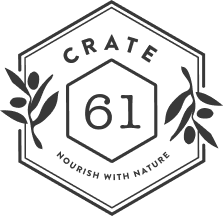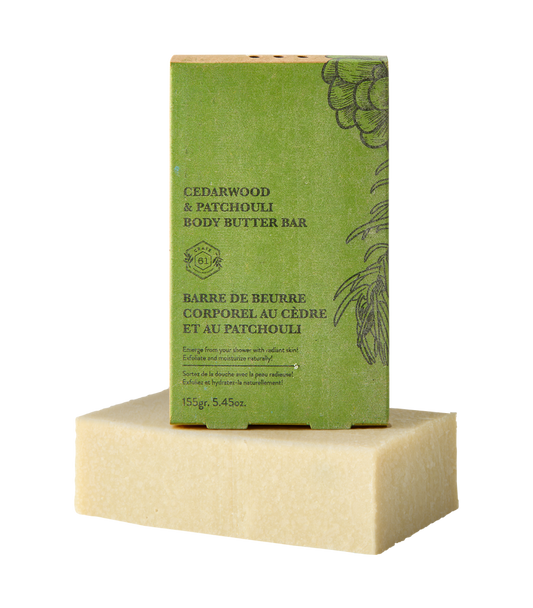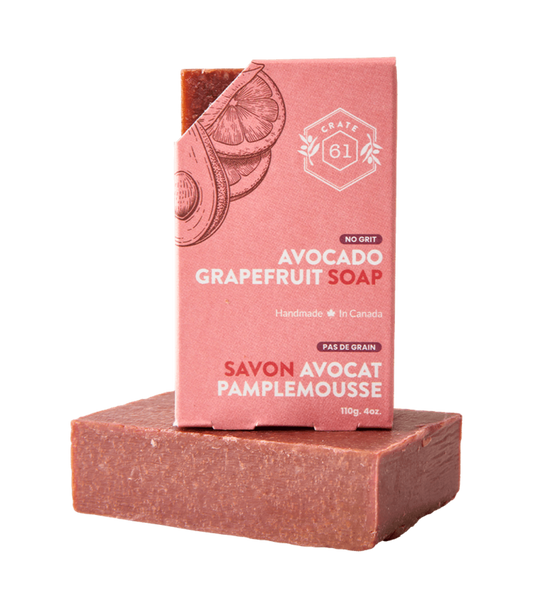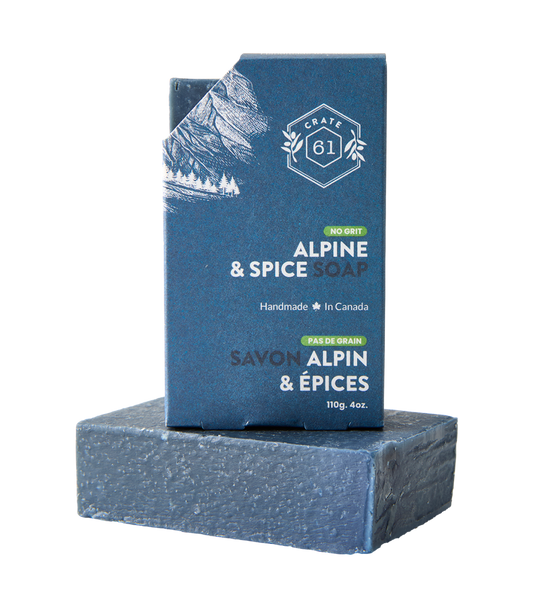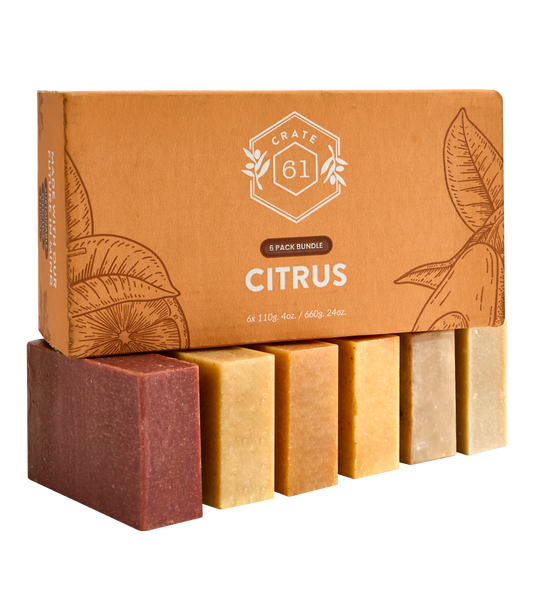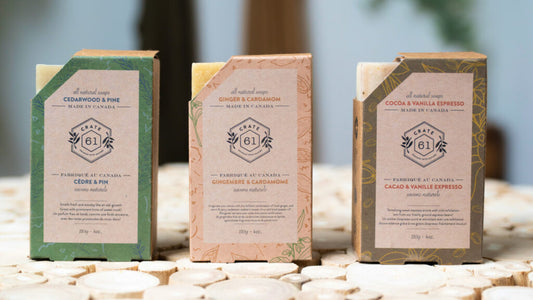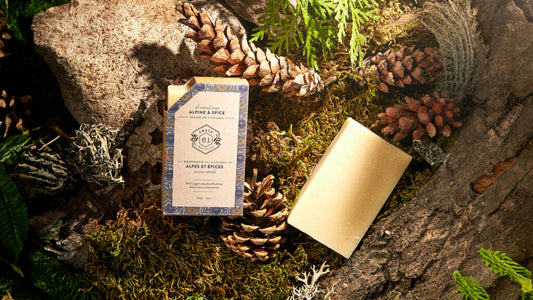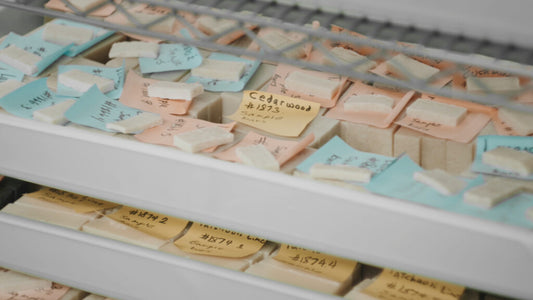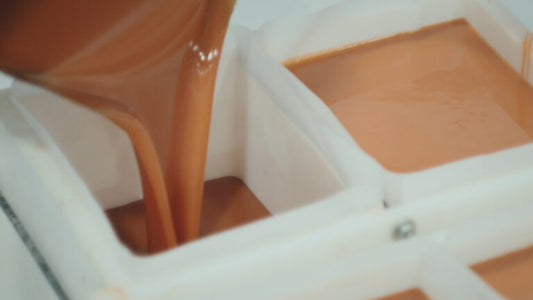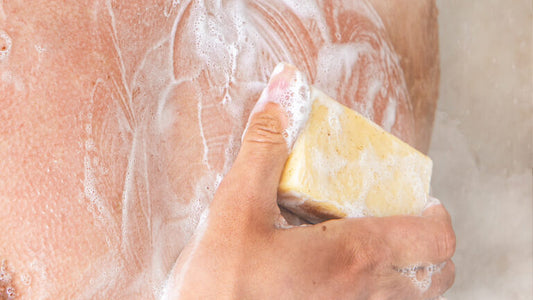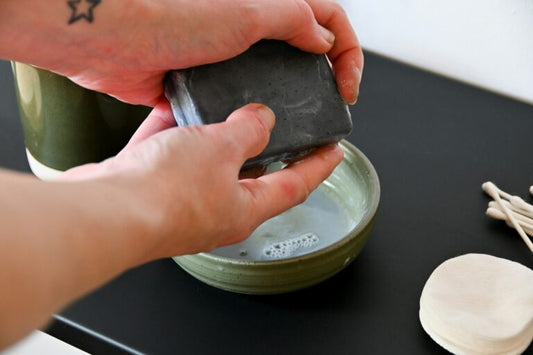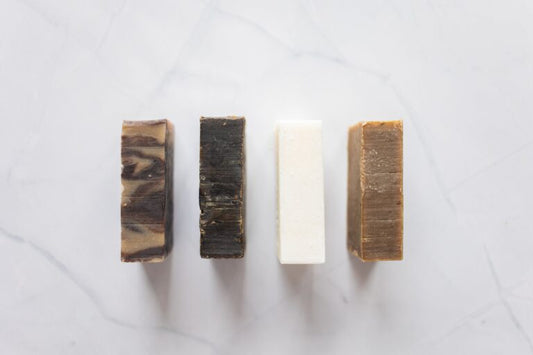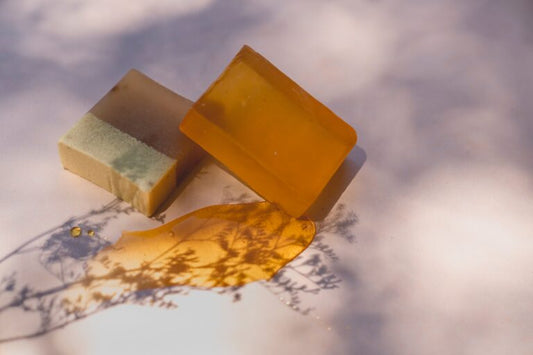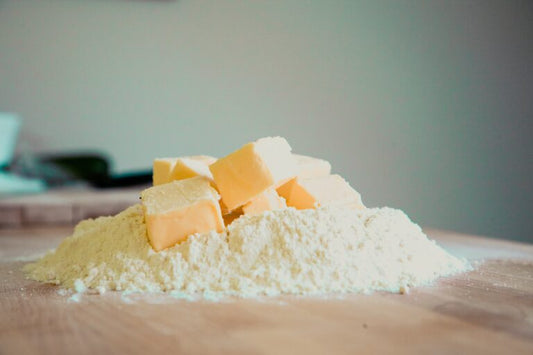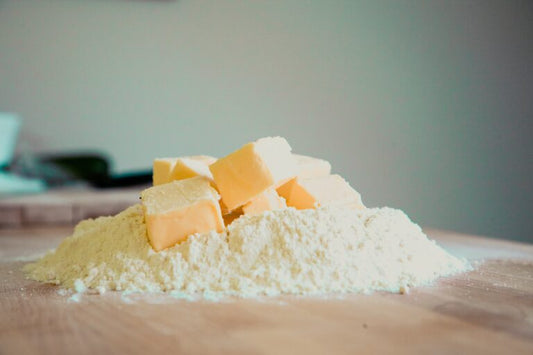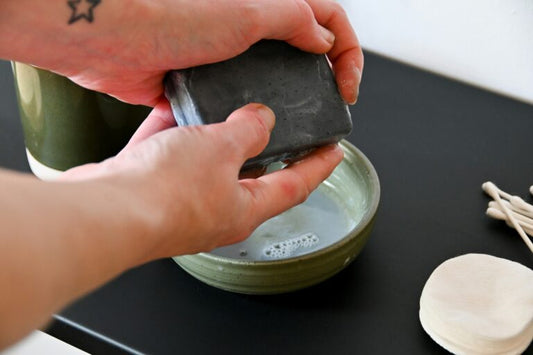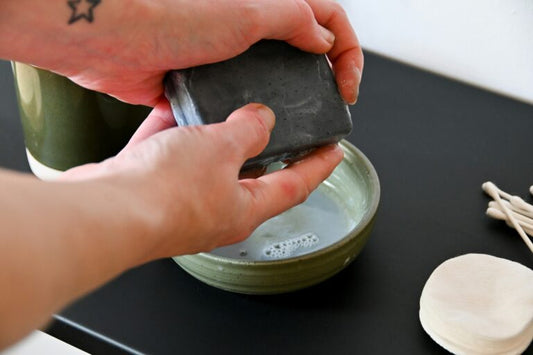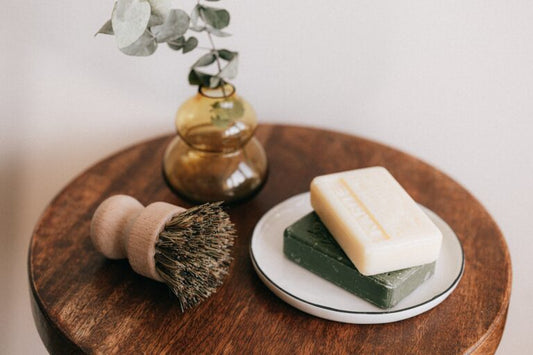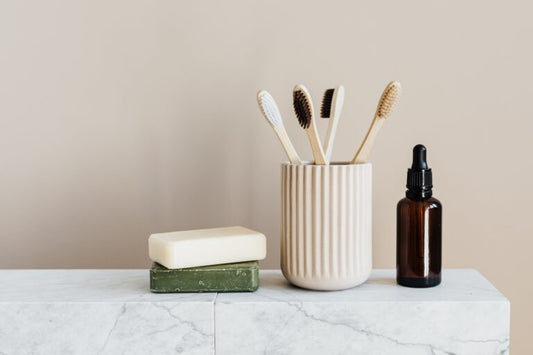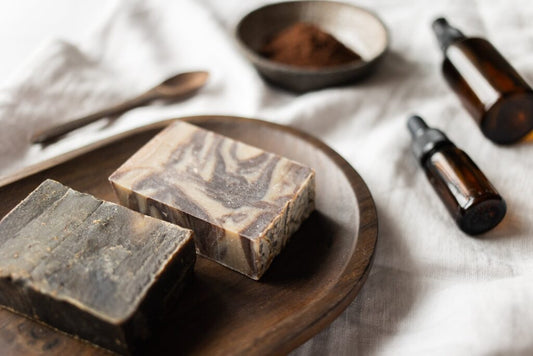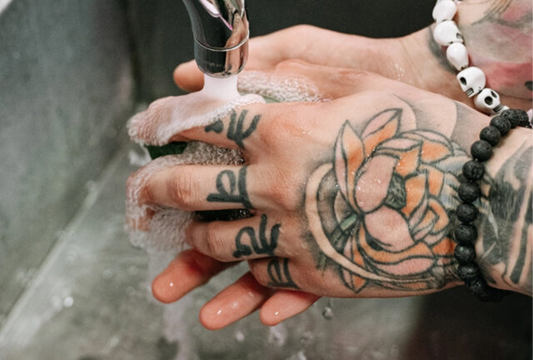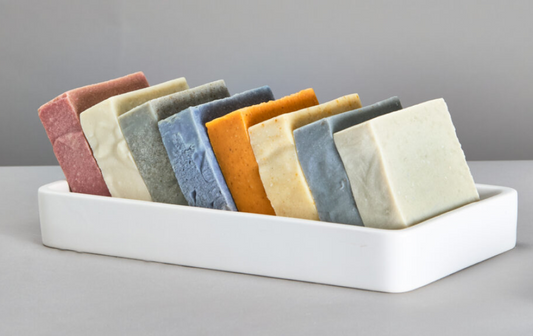Is Coconut Oil Soap Good For Your Skin?
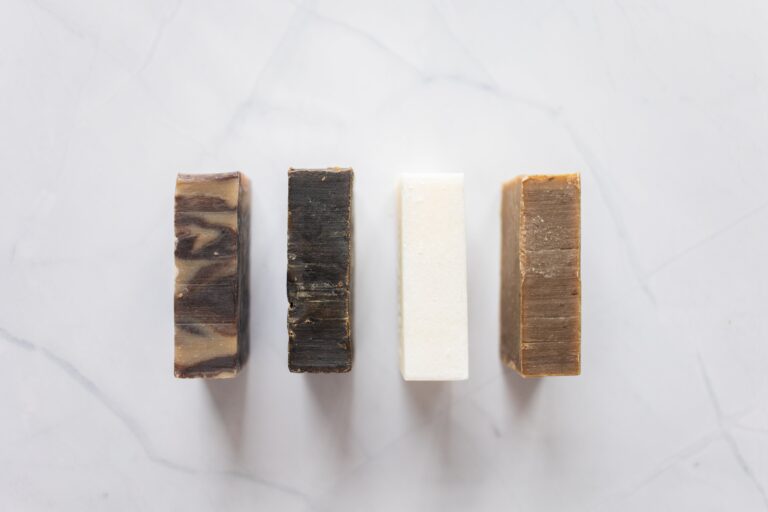
Is Coconut Oil Good for Your Skin?
What Makes Up a Coconut?
Coconuts are made up of antioxidants and all sorts of vitamins and minerals like magnesium, phosphorus, iron, zinc, selenium, and fiber to name a few. Its medium chain is so saturated with fatty acids that it has a higher melting point, keeping much of its raw chain fatty acids. Plus, the high fat saturation of coconut oil allows you to store it for up to two years without expiring!
According to Canadian Dietitians, coconut oil should be consumed sparingly or be avoided, “This oil is actually considered to be a saturated fat, at about 80%. Saturated fats have a direct link to LDL cholesterol, which is a risk factor for heart disease.” Its fatty acids consist of: lauric acid (49%), myristic acid (18%), caprylic acid (8%), palmitic acid (8%), capric acid (7%), oleic acid (6%), linoleic acid (2%), and stearic acid (2%).
With that being said, if you’re on a low-fat or plant-based diet, it’s difficult to get fat into your diet and not everyone enjoys avocados or avocado oil, so coconut oil is a great alternative. Of course, be sure to speak to your doctor or dietitian before altering your diet.
Not only is coconut oil great for cooking, it’s also used in many beauty products including as the base for lip balms, body lotions, hair products – its uses are nearly endless.
How is Coconut Oil Made?
The two ways to extract oil from the meat of a coconut dry process or the cold process.
The dry process is when the meat of the coconut is removed from the shell and heated by the sun, a kiln, or fire to create what is called copra. Then the dry copra is either pressed or dissolved with solvents which turns into both the oil and the mushy bits left over from the flesh of the coconut.

The wet process uses the coconut milk rather than the copra. The problem here is that the oil needs to be separated from the ‘milk’. For this separation to happen, a centrifuge is typically used, and sometimes it’s pretreated in a variety of ways including cold, heat, acids, salts, enzymes, electrolysis, shock waves, steam distillation, or a combination therein.
Uses For Coconut Oil
There are so many benefits of coconut oil such as it being great for cooking, baking, cosmetic formulations, but you can also use it as the first step in a double cleanse. A double cleanse is the trend where you wash your face twice, once with an emollient-based makeup remover and a second with a traditional cleanser. Coconut oil would be that first step: its high fat content will break down makeup and collect dirt and sebum, preparing your skin for your traditional cleanser. Once you double cleanse you continue on with the rest of your skincare regime.
You can also purchase coconut oil lip balm directly from our store for a softer and natural option!
Other benefits of coconut oil include being used in the manufacturing of soap! Cold process soap is made from the oils extracted from both plants and animals. What’s great about coconut oil soap is that it’s entirely plant-derived so it’s vegan, cruelty-free, and more Eco-friendly than other leading soaps that contain a lot of harsh chemicals.
Does Coconut Oil Dry Out Your Skin?
First, coconut oil is classified as an emollient: a lipid or oil which hydrates and improves the skin softness, flexibility, and smoothness. Coconut oil is a great moisturizer when it comes to lip care by creating a barrier between your skin and the air. It’s great if you want to treat yourself to a 1-ingredient overnight lip mask.
However, since it’s so densely packed with fat molecules, coconut oil is incapable of absorbing into your skin. Instead, it rests on top of your skin, sucking up and trapping in dirt and sebum. In other words, coconut oil is very comedogenic and can actually be particularly drying to your skin long term. If you have combination or oily skin or are prone to acne, coconut oil will likely just block up your pores and aggravate your skin and could cause your skin to break out, making your skin worse than when you started (and nobody wants that).
Can You Use Coconut Oil to Make Soap?
Is Coconut Oil Soap Good For Acne?
In theory, yes, lauric acid is effective at reducing the number of acne-causing bacteria on the surface of your skin. Oleic acid might also be beneficial since it can prep your skin for other products that you may use to reduce acne, like salicylic acid. Coconut oil chain fatty acids consists of:
Lauric acid could reduce inflammation and the number of acne-causing bacteria that is present on the skin.
Myristic acid is a cleansing agent naturally found in coconut oil. It can create a delicious foam but can be drying.
Caprylic acid is classified as a great emollient and aids in skin replenishment, particularly because of its combination of fatty acids that the skin needs in order to replenish its surface and resist loss of moisture over time. Palmitic acid has been shown to help improve conditions like psoriasis and eczema.
Capric acid is also a saturated fatty acid most useful in skincare and cosmetics to improve the mobility and texture of respective formulations.
Oleic acid is a monounsaturated omega-9 fatty acid. While it disrupts your natural skin barrier if you use it alone, this disruption has been shown to aid in the absorption of other ingredients.
Linoleic acid and Stearic acid are used as an emollient and a thickener in cosmetic formulas. Research has shown that it is effective at soothing and restoring skin, and as an antioxidant.
All together, coconut oil soap is a product that can help reduce the bacteria that causes acne while also aiding in water retention in skin. Coconut oil soap is a great start to a skincare routine for most skin types since it helps prep the skin for your next steps in your routine, making the rest of your routine even more effective.
Pros and Cons of Coconut Oil
Pros
There are so many benefits of coconut oil, particularly coconut oil soap, that it really all comes down to what your body likes and what your body needs to function at its best. You can use coconut oil in cooking and baking, and you can use it in your skincare regime, particularly as a coconut oil soap cleanser. Research has shown that the fatty acids which make up coconut oil reduces the count of acne-causing bacteria while maintaining a moisture barrier on particularly parched skin such as medical conditions like eczema or psoriasis. Coconut oil is also a great alternative for natural, homemade soap.
Cons
There are some cons, though. Coconut oil is very comedogenic and can aggravate acne-prone skin because it creates a thin hydrophobic barrier on the surface of the skin, trapping in dirt, bacteria and sebum. Coconut oil also may raise cholesterol, and may hurt heart health by plaque buildup from a high-fat diet.
Be sure to enter your email address at the bottom of the page to subscribe to our mailing list so you get notified on the latest content, new products and other great things you don’t want to miss!
Conclusion
Be sure to enter your email address at the bottom of the page to subscribe to our mailing list so you get notified on the latest content, new products and other great things you don’t want to miss!



